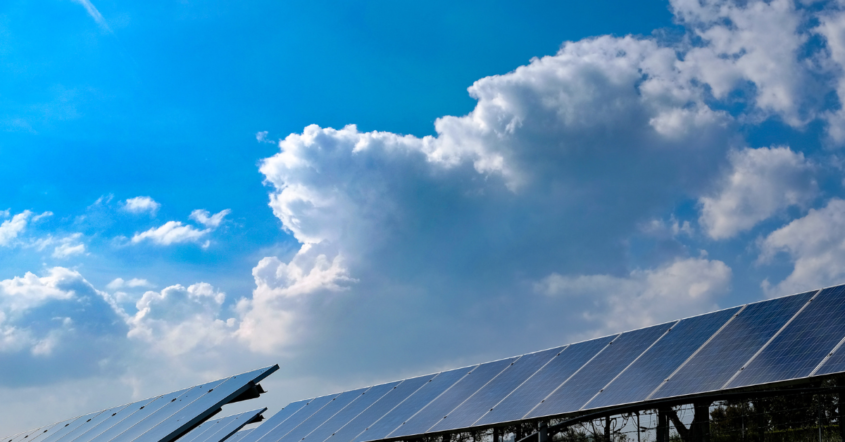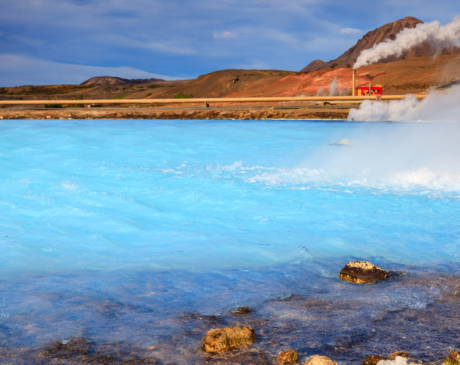Do Solar Panels Work On Cloudy Days? The Unbelievable Truth

Solar panels have become a popular choice for sustainable energy production, harnessing the power of the sun to generate electricity.
But what happens when the skies are cloudy and the sun’s rays are hidden behind a blanket of clouds? Do solar panels still work effectively on cloudy days?
The photovoltaic system, by its nature, is “slave” to solar irradiation, as the photovoltaic effect is activated when the cells perceive sunlight; however, this does not mean that its production is zero when the weather is cloudy.
In this article, we’ll explore the performance of solar panels during less-than-ideal weather conditions and shed light on whether they can still deliver energy when the sun isn’t shining brightly.
Let’s delve into what this means in detail.
How do systems work on cloudy days?
It’s true that photovoltaic systems perform best on sunny days, but contrary to popular belief, they can still generate a certain percentage of energy on cloudy days!
The key factor to consider is not the hours of sunshine, but rather the solar irradiance. Solar radiation can reach us even through cloudy skies and it can be captured by photovoltaic cells.
The sun emits radiation throughout the year, but of course, it’s during the warmer seasons that its intensity is higher. The amount of energy produced on a cloudy summer day will be greater compared to a winter day, for instance.
In essence, only at night the panels are unable to produce any energy. Of course, the photovoltaic production on cloudy days is not the same as under optimal conditions.

What is the efficiency of a system on cloudy days?
Even if the sky is overcast, photovoltaic systems can still operate to some extent. During a cloudy day, module efficiency can reach up to 25%, a percentage that still contributes to powering a small portion of your energy needs!
This figure can vary depending on several variables that affect productivity, including:
- The thickness of clouds or fog, as denser atmospheric phenomena act as a shield against solar radiation, preventing photovoltaic cells from receiving it.
- The module model, as there are new technologies that have strengthened the weak point of photovoltaics, making it productive even in cases of widespread cloudiness and less than optimal sunlight.
- The presence of power optimizers, which, if connected to the system, can increase electricity production by several percentage points, up to 25% more.
Cloudy days, finally, have a small intrinsic advantage: they reduce the risk of overheating of photovoltaic cells.
So, while panels will produce less energy, you can be sure that the system’s efficiency won’t be affected by excessively high temperatures, as is the case during the summer, for example.
Don’t be discouraged by the clouds: produce energy with photovoltaics!
Choosing to rely on clean and renewable energy from photovoltaics offers significant advantages even on cloudy days.
As we’ve seen, electricity production only stops at night, while during the day, solar radiation will still reach the photovoltaic cells, albeit at varying intensities.
The advantage lies in the fact that you’ll still be able to reduce your consumption and expenses to some extent, even when the sky is overcast.
Not to mention that by choosing photovoltaic panels with high-efficiency cells, you can further optimize production.
Do solar panels work when it’s raining?
Solar panels can generate electricity when it’s raining, but their efficiency is significantly reduced compared to sunny conditions.
Raindrops can scatter and block some of the incoming sunlight, further reducing the amount of energy that solar panels can capture.
Additionally, rain can create a layer of dirt or dust on the surface of the panels, which can decrease their efficiency.
However, modern solar panels are designed to be fairly robust and rain alone is not likely to cause any damage to them.
It’s worth noting that the impact of rain on solar panel performance depends on several factors, including the type of solar panels, the angle of the panels and the intensity of the rain.
Some advanced solar panel technologies are better at capturing diffused or indirect sunlight, which can help maintain some electricity generation even on cloudy or rainy days.

Do solar panels work when it’s snowing?
Solar panels can still generate electricity when it’s snowing, but their efficiency will be greatly reduced because the snow cover blocks the sunlight from reaching the panels.
When solar panels are covered with snow, they cannot effectively convert sunlight into electricity. Several factors influence how well solar panels perform in snowy conditions:
- Snow cover thickness: the thicker the snow cover, the less sunlight can reach the solar panels, leading to a more significant reduction in electricity generation.
- Angle of the panels: the angle at which the solar panels are installed can affect how quickly snow accumulates and how well it sheds. Panels mounted at steeper angles may shed snow more easily, but they may also accumulate more snow initially.
- Temperature: solar panels are more effective at melting snow when the temperature is slightly above freezing. If it’s extremely cold, the snow may remain on the panels longer.
- Tilt and orientation: panels facing south or with an optimized tilt angle can help reduce snow accumulation because they receive more sunlight, which can help melt the snow more quickly.
To improve the performance of solar panels in snowy conditions, some homeowners install systems with tilt mechanisms that allow them to adjust the angle of the panels to help shed snow. Others use snow rakes or similar tools to manually remove snow from their panels.
In conclusion, while solar panels undoubtedly perform at their best on sunny days, they are not rendered ineffective on cloudy days.
They can still generate a significant amount of electricity, helping to reduce your reliance on traditional energy sources and lowering your energy bills.
Factors like cloud density, geographic location and the quality of the panels can influence their performance, but solar panels remain a reliable and sustainable source of energy, even when the sun isn’t shining brightly.
So, don’t be discouraged by cloudy skies—your solar panels are still hard at work, harnessing the power of the sun!



